May 28, 2020 •
Arizona Legislature Adjourns Sine Die
The Arizona Legislature adjourned sine die on May 26 after the Senate’s swift move to adjourn was approved. The Senate had voted to end the session when it convened previously on May 8. However, this vote was met with opposition […]
The Arizona Legislature adjourned sine die on May 26 after the Senate’s swift move to adjourn was approved.
The Senate had voted to end the session when it convened previously on May 8.
However, this vote was met with opposition by Republican lawmakers.
The sine die adjournment leaves hundreds of bills dead that had been progressing through the Capitol before lawmakers postponed the session in March.
Gov. Doug Ducey is expected to call lawmakers back to the Capitol for a special session in the coming weeks.
In this session they will deal with coronavirus-related legislation and the state budget.
Lawmakers approved a $50 million relief package for COVID-19 relief before recessing for three weeks as a public health precaution. The relief package allows Gov. Doug Ducey’s administration to use the funds for the following: Housing assistance Aid for businesses […]
Lawmakers approved a $50 million relief package for COVID-19 relief before recessing for three weeks as a public health precaution.
The relief package allows Gov. Doug Ducey’s administration to use the funds for the following:
-
- Housing assistance
- Aid for businesses
- Nonprofits and healthcare providers with fewer than 50 employees
- Assistance for food banks as well as organizations serving people experiencing homelessness
The budget will keep state government operating into the new fiscal year beginning in July.
The Legislature is suspended until April 13 unless the House speaker and Senate president announce otherwise.
This does not affect lobbyist reporting.
January 14, 2020 •
Arizona County Assessor Resigns Amid Criminal Charges
The Maricopa County Assessor Paul Petersen officially resigned on January 7 amid criminal charges. Peterson’s resignation comes three months after he was charged with an international adoption fraud scheme. The county board of supervisors appointed longtime county administrator Bill Wiley […]
The Maricopa County Assessor Paul Petersen officially resigned on January 7 amid criminal charges.
Peterson’s resignation comes three months after he was charged with an international adoption fraud scheme.
The county board of supervisors appointed longtime county administrator Bill Wiley to oversee the Assessor’s Office.
August 27, 2019 •
Arizona Secretary of State Announces New Lobbying Forms
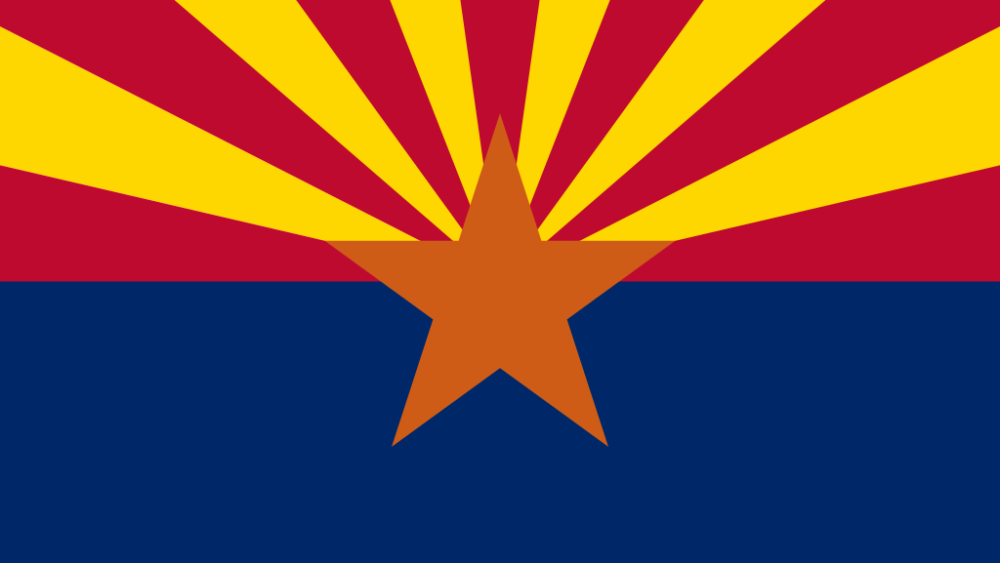
Arizona State Flag
The Arizona Secretary of State announced the implementation of new filing forms. The forms are now separated by entity types: lobbyist, principal, and public body filings. Effective August 27, the notarization requirement for all lobbying forms has been replaced by […]
The Arizona Secretary of State announced the implementation of new filing forms.
The forms are now separated by entity types: lobbyist, principal, and public body filings.
Effective August 27, the notarization requirement for all lobbying forms has been replaced by an attestation.
Because filing forms no longer require notarization the forms may be filed by email.
In the coming weeks, the Secretary of State will also implement a new website for online payment and document filing.
July 22, 2019 •
NYCU Video Digest – July 22, 2019
Four more states making campaign finance and lobbying changes. Check out which states are passing legislation in this week’s NYCU Video Digest!
Four more states making campaign finance and lobbying changes. Check out which states are passing legislation in this week’s NYCU Video Digest!

Arizona State Flag
State utility regulators at the Arizona Corporation Commission approved a new code of ethics. The new code prohibits commissioners from ruling on issues involving interested parties that have given them direct campaign donations. Only commissioners that publicly finance their campaigns […]
State utility regulators at the Arizona Corporation Commission approved a new code of ethics.
The new code prohibits commissioners from ruling on issues involving interested parties that have given them direct campaign donations.
Only commissioners that publicly finance their campaigns may make rulings on issues regarding interested parties with employees or owners that gave them personal donations.
July 2, 2019 •
Arizona Removes Notarization Requirement From Lobbying Forms

Arizona State Flag
The Arizona Secretary of State sent out communication this week regarding updates to the lobbyist filing and registration process. Senate Bill 1261, passed by the Legislature this year, removes all notarization requirements from lobbying forms. Updated forms reflecting the elimination […]
The Arizona Secretary of State sent out communication this week regarding updates to the lobbyist filing and registration process.
Senate Bill 1261, passed by the Legislature this year, removes all notarization requirements from lobbying forms.
Updated forms reflecting the elimination of notarization will be put on the state website.
Forms will also be sent to registered lobbyists in advance of the bill’s effective date on August 27, 2019.
The Arizona Secretary of State is also working to implement an online payment portal.
More information about the payment portal is forthcoming.
March 28, 2019 •
Former Arizona Attorney General Launches Campaign Against Dark Money
Former Attorney General Terry Goddard launched an effort to prohibit the use of dark money in political campaigns. The proposed constitutional amendment, called The Voters Right to Know Act, seeks to require anyone spending at least $5,000 to influence the […]
 Former Attorney General Terry Goddard launched an effort to prohibit the use of dark money in political campaigns.
Former Attorney General Terry Goddard launched an effort to prohibit the use of dark money in political campaigns.
The proposed constitutional amendment, called The Voters Right to Know Act, seeks to require anyone spending at least $5,000 to influence the outcome of an Arizona election to disclose the original source of the money.
The disclosure requirement would apply to both state and local elections in Arizona.
In order for the proposal to appear on the ballot in the 2020 general election, the campaign committee behind the citizen initiative will need close to half a million signatures.
Last year, the same campaign committee missed qualification for the ballot by just over 2,000 signatures.
The amendment would require the Citizens Clean Elections Commission to enforce the new campaign finance disclosure rules and exempt the commission’s anti-dark money rules from oversight by the Governor’s Regulatory Review Council.
The proposal coincides with current Attorney General Mark Brnovich investigating whether Tempe’s ordinance banning dark money violates a law passed last year banning cities from enacting their own dark money disclosure regulations.
March 21, 2019 •
Tempe Dark Money Ordinance Under Review
Arizona Attorney General Mark Brnovich will soon rule on whether cities can impose restrictions on dark money in local campaigns. Sen. Vince Leach alleged Tempe violated a state law prohibiting local governments from requiring tax-exempt organizations from registering as political […]
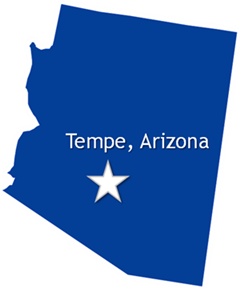 Arizona Attorney General Mark Brnovich will soon rule on whether cities can impose restrictions on dark money in local campaigns.
Arizona Attorney General Mark Brnovich will soon rule on whether cities can impose restrictions on dark money in local campaigns.
Sen. Vince Leach alleged Tempe violated a state law prohibiting local governments from requiring tax-exempt organizations from registering as political committees in 2017 by passing a voter approved ordinance banning dark money contributions.
The law allowing a legislator to demand an attorney general to investigate complaints applies only to ordinances, regulations or other official action adopted or taken by the governing board of a county, city or town.
It is unclear if the authority extends to this voter-approved measure referred to the ballot by Tempe City Council.
Tempe’s dark money ordinance was signed by Gov. Doug Ducey in 2017, as constitutionally required, but he noted it may soon be superseded by state law.
The ordinance in question requires any group spending more than $1,000 during an election cycle to disclose the original source of contributions.
The Office of the Attorney General has 30 days to decide if the complaint has merit.
January 22, 2019 •
Arizona Bill Regarding Lobbyist Gifts and Reporting Introduced
Rep. John Kavanagh introduced House Bill 2038 to the Arizona Legislature. The bill defines “hosted event” to include an event or function where one or more state officers or employees are invited and attend organized and paid for by a […]
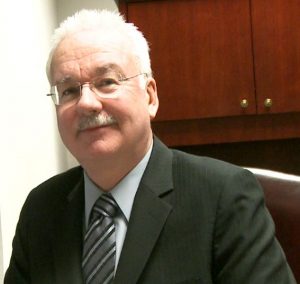 Rep. John Kavanagh introduced House Bill 2038 to the Arizona Legislature.
Rep. John Kavanagh introduced House Bill 2038 to the Arizona Legislature.
The bill defines “hosted event” to include an event or function where one or more state officers or employees are invited and attend organized and paid for by a principal.
Event or function includes a party, dinner, or luncheon, but does not include an athletic event or other entertainment.
A hosted event must be reported by the actual cost incurred for food, beverage, and other tangible benefits but do not include the overall sponsorship amount incurred by the principal or lobbyist.
Opponents to the bill say only reporting the food and beverage amount and not including the price of the ticket to the event is misleading.
December 6, 2018 •
Arizona Judge Rules Campaign Finance Laws Unconstitutional
In a ruling this week, the Maricopa County Superior Court restored expanded oversight to the Citizens Clean Election Commission and deemed parts of the 2016 campaign finance law unconstitutional. The court found that power to investigate campaign finance violations and […]
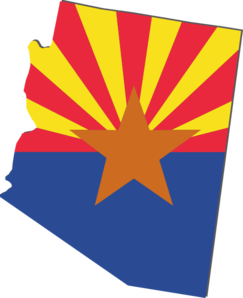 In a ruling this week, the Maricopa County Superior Court restored expanded oversight to the Citizens Clean Election Commission and deemed parts of the 2016 campaign finance law unconstitutional.
In a ruling this week, the Maricopa County Superior Court restored expanded oversight to the Citizens Clean Election Commission and deemed parts of the 2016 campaign finance law unconstitutional.
The court found that power to investigate campaign finance violations and act as the filing officer was illegally stripped from the Commission created by voters in 1998.
Additionally, the 2016 law created provisions allowing unlimited spending on legal fees, accounting and other types of support for candidates and political committees without being counted toward contribution limits.
Judge David J. Palmer ruled the above provisions violate the Voter Protection Act, a voter-approved constitutional provision banning lawmakers from significantly altering voter-enacted laws.
An appeal is expected from the defendants who include the Arizona Secretary of State. It is unclear how campaign finance filing and enforcement will be immediately affected.
November 7, 2018 •
Phoenix Passes Amendment Requiring Dark Money Disclosure
Voters in Phoenix overwhelmingly passed Proposition 419, an amendment to the Charter of the City of Phoenix requiring any person, association of persons or entity making expenditures to influence the result of a city election to disclose and identify expenditures […]
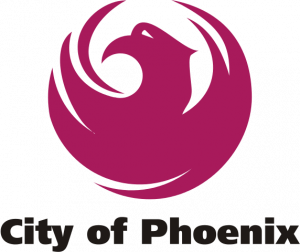 Voters in Phoenix overwhelmingly passed Proposition 419, an amendment to the Charter of the City of Phoenix requiring any person, association of persons or entity making expenditures to influence the result of a city election to disclose and identify expenditures and contributions including original and intermediary sources of major contributions.
Voters in Phoenix overwhelmingly passed Proposition 419, an amendment to the Charter of the City of Phoenix requiring any person, association of persons or entity making expenditures to influence the result of a city election to disclose and identify expenditures and contributions including original and intermediary sources of major contributions.
This is the latest in a nationwide trend to limit the influence of so-called dark money.
Proponents for the proposition argued Proposition 419 was a critical step to restoring the public’s trust in our elections.
The proposition passed 86.1 percent to 13.89 percent.
November 7, 2018 •
Arizona Passes Ballot Measure Limiting Clean Elections Commission
In Tuesday’s election, Arizona passed Proposition 306, placing limits on the state’s Clean Elections Commission’s rulemaking ability among other things. The voter created Arizona Clean Elections Commission was established in 1998 and runs a public-financing system for candidates and enforces […]
In Tuesday’s election, Arizona passed Proposition 306, placing limits on the state’s Clean Elections Commission’s rulemaking ability among other things.
The voter created Arizona Clean Elections Commission was established in 1998 and runs a public-financing system for candidates and enforces financial-reporting rules for campaigns and groups that spend money in elections.
Proposition 306 requires the Commission’s rules to be approved by the Governor’s Regulatory Review Council comprised of political appointees. Opponents argued it was a way to limit the Commission’s ability to police dark money spending in Arizona.
The measure also prohibits candidates who receive public financing from paying money to political parties or private tax-exempt groups that try to influence elections.
Proposition 306 passed with 56 percent of the vote.
September 4, 2018 •
Arizona Governor Names McCain Replacement
Gov. Doug Ducey has named Sen. Jon Kyl to fill the late Sen. John McCain’s seat in the Senate. Sen. Kyl represented Arizona in the Senate for close to 20 years before reaching retirement in 2013. Kyl has committed to […]
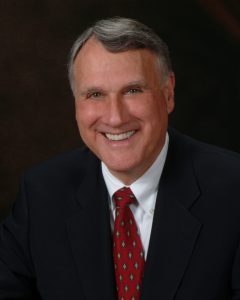 Gov. Doug Ducey has named Sen. Jon Kyl to fill the late Sen. John McCain’s seat in the Senate.
Gov. Doug Ducey has named Sen. Jon Kyl to fill the late Sen. John McCain’s seat in the Senate.
Sen. Kyl represented Arizona in the Senate for close to 20 years before reaching retirement in 2013. Kyl has committed to serving until the end of 2018, and possibly until a 2020 special election to fill the seat more permanently.
Gov. Ducey’s office reportedly considered several replacements since Sen. McCain’s diagnosis 13 months ago, including his wife Cindy McCain.
Gov. Ducey is the first governor in Arizona’s 106-year history to fill a U.S. Senate seat by appointment.
State and Federal Communications, Inc. provides research and consulting services for government relations professionals on lobbying laws, procurement lobbying laws, political contribution laws in the United States and Canada. Learn more by visiting stateandfed.com.


